Gardener Thornton Heath: Cultivating Green Spaces in Your Local Community
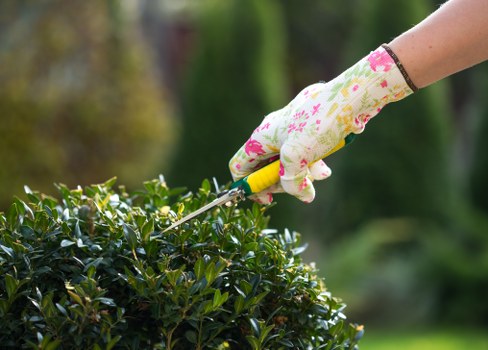
Maintaining a beautiful garden in Thornton Heath requires more than just time and effort; it demands expertise, creativity, and a deep understanding of the local climate and soil conditions. Whether you're a seasoned gardener or a beginner looking to improve your outdoor space, having the right gardener in Thornton Heath can make all the difference.
In this article, we'll explore the essential aspects of gardening in Thornton Heath, including tips for getting started, the best plants for the area, and how professional gardeners can help you achieve your green goals.
Understanding the local environment is crucial for successful gardening. Thornton Heath enjoys a temperate climate, which allows for a variety of plants to thrive. However, factors such as soil quality, sunlight exposure, and rainfall patterns must be considered when planning your garden.
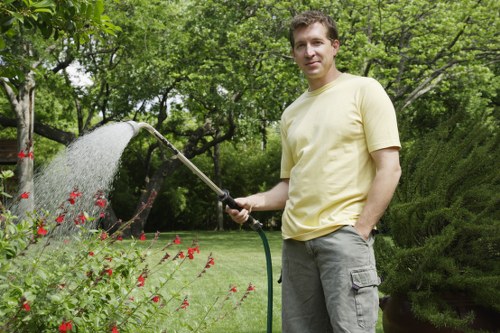
Why Hire a Professional Gardener in Thornton Heath?
Hiring a professional gardener in Thornton Heath offers numerous benefits. Professionals bring expertise and experience that can transform your garden into a vibrant, healthy space. They are knowledgeable about the best practices for plant care, pest control, and landscape design specific to the Thornton Heath area.
Moreover, a professional gardener can save you time and effort. Instead of spending weekends tending to your garden, you can leave the hard work to the experts and enjoy a beautifully maintained outdoor space.
Additionally, professional gardeners often have access to resources and tools that may not be readily available to the average homeowner. This includes specialized equipment, high-quality fertilizers, and pest management solutions that ensure your garden remains lush and healthy throughout the year.
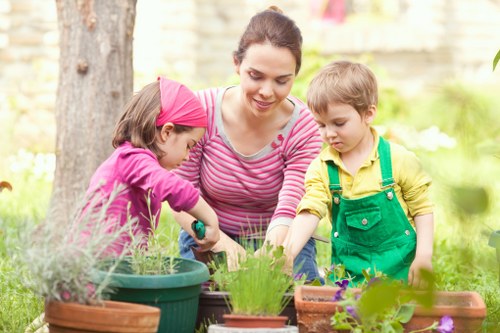
Essential Gardening Tips for Thornton Heath
1. Soil Preparation
Healthy soil is the foundation of a thriving garden. In Thornton Heath, it's important to test your soil to determine its pH level and nutrient content. Based on the results, you can amend the soil with compost, manure, or other organic matter to improve its structure and fertility.
2. Choosing the Right Plants
Select plants that are well-suited to the local climate and soil conditions. Some popular choices in Thornton Heath include roses, lavender, hydrangeas, and native shrubs. These plants not only add beauty but also attract pollinators, contributing to a balanced ecosystem in your garden.
3. Watering Practices
Proper watering is essential for plant health. In Thornton Heath, it's advisable to water early in the morning to reduce evaporation and prevent fungal diseases. Using drip irrigation systems can also help conserve water while ensuring your plants receive adequate moisture.
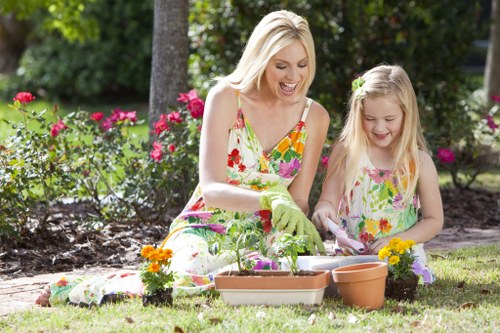
Designing Your Garden Layout
A well-designed garden layout enhances both the aesthetic appeal and functionality of your outdoor space. Consider the following elements when planning your garden:
- Pathways: Create clear pathways to navigate through your garden, making it easier to access different areas.
- Plant Beds: Organize plants into beds based on their sunlight and water requirements to promote healthy growth.
- Seating Areas: Incorporate benches or seating areas where you can relax and enjoy your garden.
- Focal Points: Add features like fountains, sculptures, or unique plants to serve as focal points in your garden.
Working with a gardener in Thornton Heath can help you create a cohesive and visually appealing garden layout that meets your personal preferences and lifestyle needs.
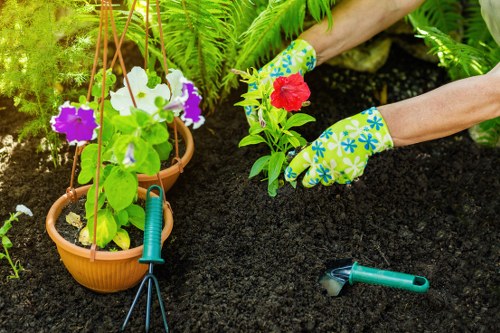
Seasonal Gardening in Thornton Heath
Spring
Spring is the perfect time to plant new flowers and vegetables. Focus on sowing seeds and transplanting young plants to kickstart the growing season.
Summer
During summer, regular watering and maintenance are crucial. Prune overgrown branches and deadhead spent flowers to encourage continuous blooming.
Autumn
As the weather cools, prepare your garden for the winter months by mulching and planting hardy perennials that will return the following spring.
Winter
Winter gardening involves protecting your plants from frost and planning for the next growing season. It's a great time to assess your garden's layout and make any necessary adjustments.

Choosing the Right Tools and Equipment
Having the right tools can make gardening easier and more efficient. Some essential tools for gardeners in Thornton Heath include:
- Hand Trowel: Perfect for planting, weeding, and transferring seedlings.
- Pruning Shears: Essential for trimming and shaping plants.
- Garden Fork: Ideal for turning and aerating soil.
- Watering Can or Hose: Necessary for keeping your plants hydrated.
- Wheelbarrow: Useful for transporting soil, compost, and other materials.
Investing in high-quality tools ensures durability and efficiency, making your gardening tasks easier and more enjoyable.

Common Pests and How to Control Them
Pests can pose a significant threat to your garden's health. In Thornton Heath, some common garden pests include aphids, slugs, and snails. Here are some effective ways to manage these pests:
- Aphids: Introduce natural predators like ladybugs or use insecticidal soap to control aphid populations.
- Slugs and Snails: Use barriers such as crushed eggshells or copper tape to deter these pests, and consider environmentally friendly slug baits.
- Weevils: Practice crop rotation and avoid over-fertilizing to reduce the risk of weevil infestations.
Regular monitoring and early intervention are key to preventing pest-related damage in your garden.

Sustainable Gardening Practices
Adopting sustainable gardening practices not only benefits the environment but also enhances the health and longevity of your garden. Here are some sustainable practices to consider:
Composting
Composting converts kitchen scraps and garden waste into nutrient-rich compost, which can be used to improve soil fertility and structure.
Rainwater Harvesting
Collecting rainwater reduces your reliance on municipal water sources and provides plants with natural, chemical-free water.
Mulching
Applying mulch helps retain soil moisture, suppress weeds, and regulate soil temperature, creating a more stable environment for plant growth.
Native Plants
Incorporating native plants into your garden supports local wildlife and requires less maintenance, as they are well-adapted to the local climate and soil conditions.

Local Gardening Events and Resources
Engaging with the local gardening community in Thornton Heath can provide valuable insights and support. Attend local gardening events, workshops, and plant exchanges to learn new techniques and connect with fellow gardening enthusiasts.
Additionally, utilize resources such as the Thornton Heath Garden Society and local nurseries, which offer a wealth of knowledge and high-quality plants tailored to the region's unique conditions.
Staying informed about the latest gardening trends and best practices ensures that your garden remains vibrant and resilient year-round.

Maintaining Your Garden Throughout the Year
Consistent maintenance is essential for a healthy and attractive garden. Here are some tasks to incorporate into your yearly gardening routine:
- Pruning: Regularly prune shrubs and trees to promote healthy growth and remove dead or diseased branches.
- Weeding: Keep your garden beds free of weeds to reduce competition for nutrients and water.
- Fertilizing: Apply appropriate fertilizers to provide essential nutrients to your plants.
- Pest Control: Continuously monitor for pests and diseases, addressing them promptly to prevent widespread issues.
- Lawn Care: Mow, aerate, and overseed your lawn as needed to maintain its health and appearance.
By staying on top of these maintenance tasks, you can ensure that your garden remains a beautiful and relaxing space throughout the year.

10-15 Nearby Areas to Thornton Heath for Gardening Services
If you're looking for gardening services near Thornton Heath, there are several nearby areas that offer excellent options. Here are some of the closest areas, along with their unique features related to gardening:
- Norbury: Known for its community gardens and green spaces, Norbury offers numerous opportunities for gardening enthusiasts.
- Elmstead: Elmstead boasts a variety of local nurseries and garden centers, providing a wide selection of plants and supplies.
- Hoxton: With its blend of residential and commercial spaces, Hoxton is home to several professional landscapers and gardeners.
- Sowter: Sowter features beautiful parks and green belts, perfect for those who enjoy large-scale gardening projects.
- Grange: Grange offers a mix of traditional and modern gardening services, catering to diverse gardening needs.
- West Thornton Heath: This area is recognized for its well-maintained private gardens and expert gardening professionals.
- East Thornton Heath: East Thornton Heath has a vibrant gardening community with frequent workshops and events.
- Liberty Green: Liberty Green is known for its eco-friendly gardening practices and sustainable landscaping options.
- Mayfield: Mayfield provides a variety of gardening services, from basic maintenance to comprehensive landscape design.
- Patrons Park: Home to expansive gardens and green spaces, Patrons Park is ideal for gardening inspiration and professional assistance.
- Spring Park: Spring Park offers a range of gardening solutions, including bespoke garden designs tailored to individual preferences.
- Compton Green: Compton Green is renowned for its botanical gardens and expert horticulturists.
- Beckenham: Beckenham features numerous gardening clubs and societies, fostering a strong community of garden lovers.
- Penge: Penge provides diverse gardening services, catering to both residential and commercial clients.
- Sydenham Green: Sydenham Green is celebrated for its floral displays and expert garden maintenance services.
Choosing a local gardener from any of these areas ensures that you receive services tailored to the specific climate and soil conditions of Thornton Heath and its surroundings.

Conclusion
Gardening in Thornton Heath can be a fulfilling and rewarding endeavor with the right knowledge and support. Whether you're cultivating a small backyard garden or managing a larger landscape, understanding the local environment and utilizing professional services can help you achieve a thriving green space.
By following the tips outlined in this article and engaging with the local gardening community, you can create and maintain a beautiful garden that enhances your home and contributes to the overall beauty of Thornton Heath.

Frequently Asked Questions
1. What services do gardeners in Thornton Heath typically offer?
Gardners in Thornton Heath offer a range of services including garden design, planting, maintenance, pruning, lawn care, pest control, and sustainable gardening practices. Many also provide specialized services such as landscape design and seasonal planting.
2. How much does it cost to hire a gardener in Thornton Heath?
The cost of hiring a gardener in Thornton Heath varies based on the services required, the size of the garden, and the gardener's experience. On average, prices can range from £25 to £50 per hour, with some offering flat rates for specific projects.
3. When is the best time to start a garden in Thornton Heath?
The best time to start a garden in Thornton Heath is during the spring, as the weather conditions are ideal for planting and establishing new plants. However, with proper planning, gardening can be successful in other seasons as well.
4. Are there any native plants recommended for gardens in Thornton Heath?
Yes, some native plants that thrive in Thornton Heath include lavender, roses, hydrangeas, foxgloves, and native shrubs like holly and hawthorn. These plants are well-adapted to the local climate and soil conditions, making them excellent choices for sustainable gardening.
5. How can I make my Thornton Heath garden more environmentally friendly?
To make your garden more environmentally friendly, consider practices such as composting, rainwater harvesting, using native plants, reducing chemical pesticide use, and incorporating sustainable gardening techniques like mulching and organic fertilization.